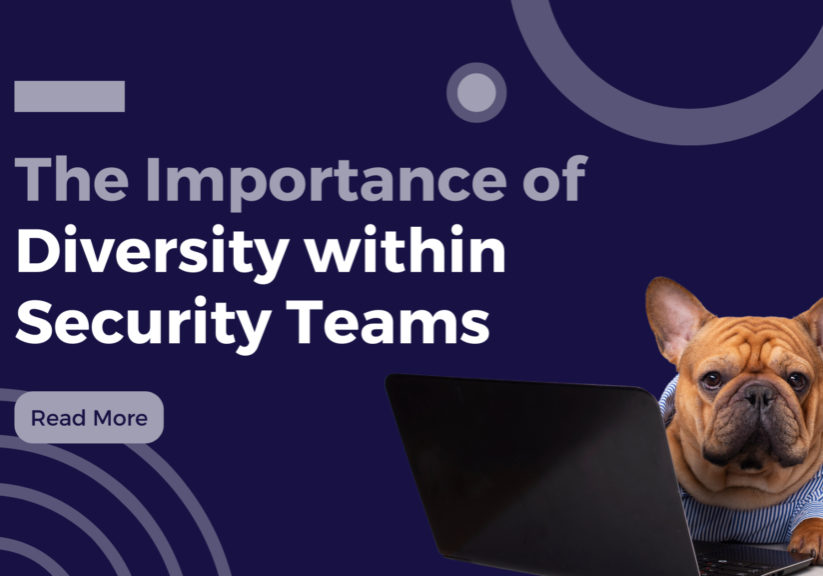Embarking on a career transition from government service into the private sector can be both exciting and challenging, presenting a unique set of both opportunities and considerations. To help those security professionals who are contemplating making the leap, we have sought advice from the best and brightest who have successfully navigated this journey!
- Set Yourself Apart and Build Relationships
“Thousands of people have done the same and have the same skills. Think about how you set yourself apart from the rest” – Sarah Mathers, Vice President – Head of International Security at the NBA.
Sarah stressed the importance of setting yourself apart from the competition. Why should they hire you? What transferable skills do you have that make you attractive to the corporate world? Draw on those experiences from previous roles that apply to the one you’re applying for. For example, your experience in managing budgets or understanding contracts might be something that is very easy to bring to life in the private sector. Also consider that you might have to start at a job level that you might see as junior in certain ways, but that’s how you build a reputation.
If your transferable experience is limited, build a personal brand to gain influence. Create a network by being an active member on LinkedIn and attend industry events and webinars to gain a better understanding of the private sector.
It’s important to note that building relationships isn’t just important outside of your work, in fact it’s crucial if you want to make it in the corporate world. The wider business often “have no care for security” as they’re viewed as a support/enabler function. Rather than be a dictator, know your value and sell it! Build those cross-functional relationships and you will start to reap the rewards.
2. Clarity, Awareness, and Long-Term Vision
“Be clear on what it is you’re hoping to get out of a change in career direction. A different experience? More money? Increased autonomy? Understanding this will help you identify what the best route is for you.” – Matt Ince, Associate Director, Strategic Intelligence at Dragonfly.
Here, Associate Director of Dragonfly, Matt Ince emphasises the consideration process around transitioning. You need to do your level best to clearly define the desired outcome of this career change, and consider how it aligns with your long-term career goals. If you can’t pinpoint exactly what it is you are looking for, start with what you aren’t looking for. What lead you to consider transitioning in the first place?
Although the private sector offers a world of opportunity, you need to consider what you’re potentially giving up. Government work can be fast-paced, highly rewarding and exciting, particularly if you work on national security. The opportunities for growth are endless, and you can easily move between roles if you ever want a change of scenery. Whilst many roles outside of government will offer you this and more, it’s not always guaranteed.
A potential pitfall of working within the private sector, is that it often involves working comfortably amidst ambiguity and job security can be perceived as lacking in more commercial settings. You should assess your comfort levels with uncertain situations and adjust your expectations accordingly.
3. Patience is Key
“Be patient with yourself – it’s a big change and it’s going to take time” – Jaeh Ranautta-Sambhi, Senior Intelligence Risk Analyst at GSK.
Jaeh Ranautta-Sambhi offers a comforting piece of advice: be patient with yourself during this significant change. Transitioning to the private sector takes time, and embracing this reality is essential.
There will be a number of big changes when moving over to the corporate world, none moreso than adapting to the company culture. Differing significantly from the structured environments of government agencies, private sector organisations have their own corporate cultures. Adaptability is key here. Familiarise yourself with the corporate culture, values, and the goals of your new employer to integrate seamlessly into the team.
Another considerable change is the technology. Private sector security often involves a deeper integration of technology, which can be tricky to navigate at first. Private organisations tend to leverage advanced solutions to protect their assets, so it’s always useful to keep up to date with the latest security technologies and tools when embarking on a career in the private sector.
If you’re looking for more practical advice, Jaeh suggested contacting the team at enteles Search (we didn’t bribe her, we promise!). As part of our commitment to our candidates, we’re always available to help guide you through your career change, be that with another company or in a new sector entirely. If you’d like free, tailored career advice, please get in touch on +4420 3884 2233 or browse our resources at enteles-search.com.
Conclusion
Transitioning from government service security to the private sector is a rewarding journey that demands adaptability, strategic planning, and a commitment to ongoing professional development. By embracing the unique challenges and opportunities presented by the private sector, security professionals can carve out a successful and fulfilling career path.
Rest assured, if you do make the move and find it isn’t right for you, you can always return to government service. The skills and experience gained in the private sector can enhance your success in a government comeback, and beyond.





